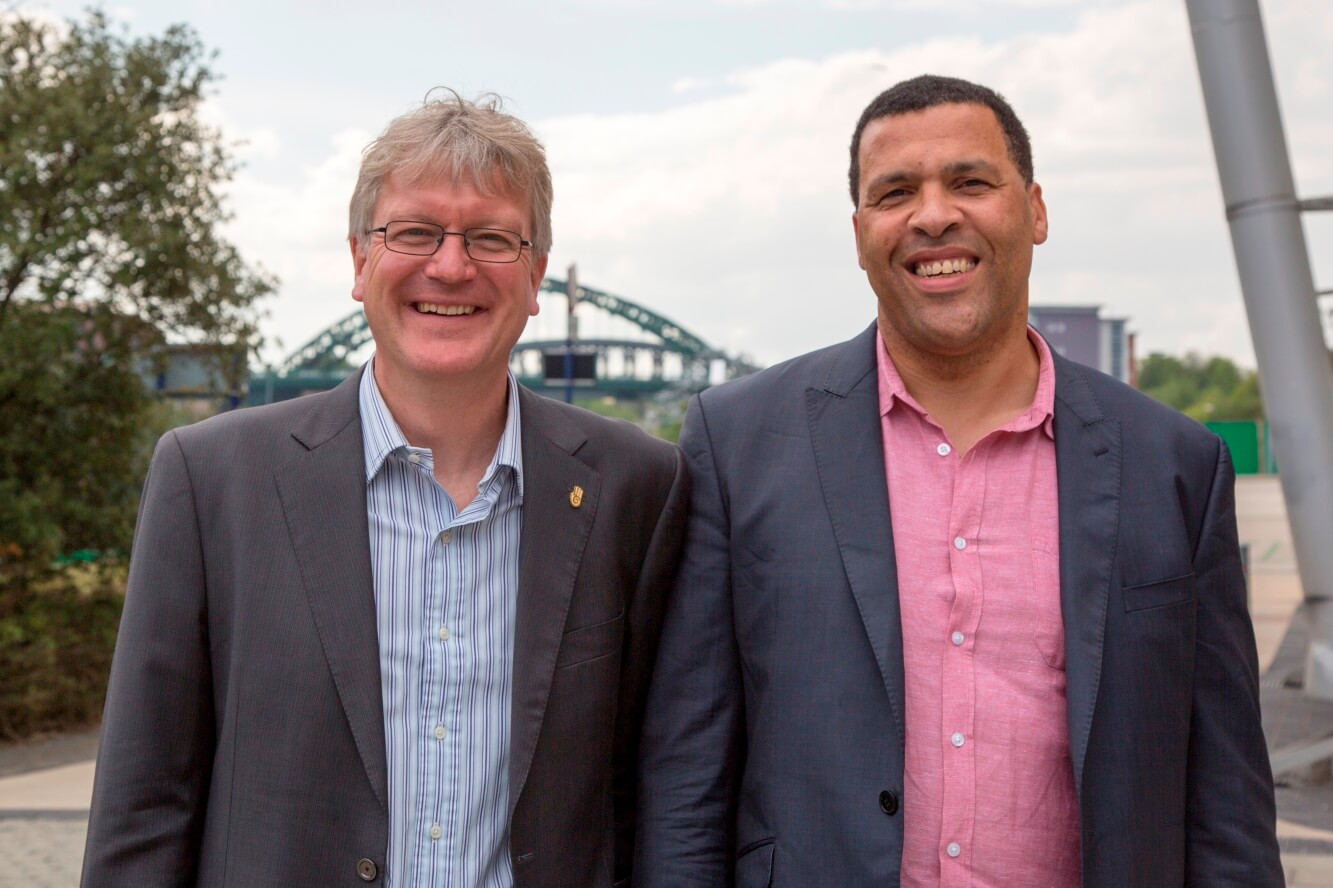Growing urbanization and social inequality increases the risk of violence and is preventing urban areas reaching their full potential. So, what can be done to build trust and common ground between historically adversarial civil society and law enforcement sectors in the Global South?

Rob Worrall (right) and Finn Kjaerulf (left)
*This is a guest blog post by Rob Worrall, PhD and Finn Kjaerulf. Rob is the lead author of a recently published IJPH paper on how a leadership development programme has enabled trust building between civil society and law enforcement leaders as part of an Intersectoral Urban Violence Prevention (IUVP) programme in Kenya. Rob has just taken up a new role as a Leadership and Management Specialist for the Institute of Public Administration (IPA) in Dublin, Ireland.
The co-author of this article Finn Kjaerulf is a social scientist with more than twenty years’ experience of working with local partner organizations on urban violence, security, protection and prevention especially in Central America and East Africa.
Much has been written about the causes and complexity of urban violence and there is an increasing acceptance that reducing it requires effective collaboration between opposing sectors. However, much less has been written about how to work with local partner organizations to build this collaborative capability.
After completing my PhD in Place-Based Leadership Development (P-BLD), I was keen to ensure that the product of my research would have a real-world impact. A chance meeting in a swimming pool with Finn Kjaerulf, Urban Violence Prevention Manager of DIGNITY (The Danish Institute Against Torture) has enabled me to fulfil this goal. Working with DIGNITY’s local Kenyan partner the MidRift Human Rights Network, and following successful pilot workshops in Nakuru (Oct 2016) and Naivasha (Dec 2016), our fruitful and ongoing collaboration has led to the development of a three-year (2017-2019) P-BLD programme for IUVP in both places. We are developing the capability of two cohorts of 25 leaders working together in intersectoral urban violence prevention and building trust between them. This shared journey of self-development, mutual learning and discovery is enabling these leader collaboratives to enact place-based violence reduction
The impact of our work has been recognised by the awarding of the Ruskin Medal for real world impact. Today we are very proud to present some of our key findings from the lived experience of the intersectoral leaders from the initial P-BLD programme sessions which took place in March 2017.
This paper provides an analysis of how a unique Place-Based Leadership Development programme has enabled leaders to surface and explicitly address the emotional, relational and structural tensions they face in working together. This has built trust, mutual respect and common understanding as a firm foundation for combating urban violence in an evidence-based approach which is replicable within urban areas across the world.
Indeed, in 2018 we have been working with local partners delivering further pilot workshops within different cultural, social and geographical settings in municipalities in Uganda and Guatemala further building the evidence base. We are currently presenting the findings of this embedded implementation research at academic conferences, to be followed by submissions to appropriate academic journals.
[…] The ongoing embedded evaluation of the impact of the interventions through the lived experience of the intersectoral leaders in each place has been presented at a number of international conferences, which has been followed up a number of submissions to academic journals. An overwiew of the first journal publication is presented in the blog for the International Journal of Public Health. […]
[…] Read More ………… […]